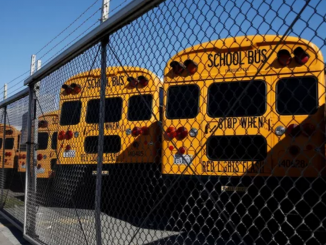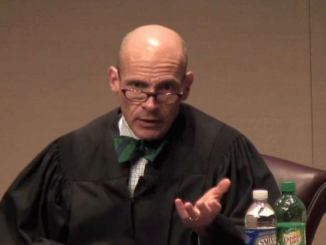
A federal humanitarian agency won’t answer key questions about its nearly $5 million grant to a research organization already under fire for its work at the Wuhan lab possibly linked to COVID-19.
The U.S. Agency for International Development gave EcoHealth Alliance a $4.67 million grant in late 2021, despite serious unanswered questions about EcoHealth’s funding of bat virus research at the Chinese lab. EcoHealth has been granted millions of dollars by the National Institutes of Health but ran into compliance problems prior to the unrelated award from USAID.
“The grant awarded to EcoHealth Alliance will implement the Conservation Works Activity in southwest Liberia,” a USAID spokesperson told the Washington Examiner. “CWA partners will work with local communities to improve farming practices and sustainable opportunities that reduce reliance on land, wood, or wildlife in conservation areas.
The project began Oct. 26, 2021, just six days after the National Institutes of Health revealed that EcoHealth had violated the terms of its grants with the agency, with NIH revealing further violations in January.
The Washington Examiner asked USAID officials if the problems with NIH were considered, as well as the fact that the Wuhan lab is considered by U.S. intelligence to be the plausible origin of COVID. USAID did not answer any of those questions directly.
“CWA was competitively bid and awarded,” a USAID spokesperson said. “EcoHealth Alliance has experience monitoring wildlife and understanding forest-disease dynamics in Liberia, and its consortium partners have substantial experience with protected area management and rural development in Liberia.”
Peter Daszak, the leader of EcoHealth, maintained a long working relationship with Wuhan lab “bat lady” Shi Zhengli and sent her lab U.S. government funding. Daszak was also part of the World Health Organization-China team that dismissed the lab leak hypothesis as “extremely unlikely” in early 2021. He also helped organize a February 2020 Lancet letter that dismissed the lab leak hypothesis as a conspiracy theory.
More than two dozen House Republicans questioned the grant in a letter to USAID Administrator Samantha Power this week.
“[We are] deeply concerned by this award given EcoHealth and Dr. Daszak’s troubling record of failing to report findings from federally funded research, refusing to cooperate with congressional oversight of federal funding awarded to the organization, and collaborating with the Wuhan Institute of Virology,” read the letter.
The GOP letter stated that USAID’s global PREDICT, a project of USAID’s Emerging Pandemic Threats Program, provided $1.1 million to EcoHealth between 2009 to 2019, with money used for a sub-agreement with the Wuhan lab. They also noted USAID provided another $2.5 million in funding to EcoHealth between 2011 and 2021.
Emails show EcoHealth sought to delay the release of taxpayer-funded viral sequences early in the COVID-19 pandemic in part because Chinese authorities had not yet approved the data’s release. Daszak urged his colleagues in a late April 2020 email to delay the release of the data to a public NIH database because it would bring “very unwelcome attention” to “PREDICT and USAID.”
EcoHealth’s website touts its involvement in USAID’s PREDICT program, saying it “works at the leading edge of this field by building local capabilities and testing high-risk wildlife” in places such as China.
EcoHealth has received tens of millions of dollars from the U.S. government in recent years, including $6.99 million in 2021, with the aforementioned $4.67 million from USAID as well as $2.075 million from NIH. A government funding database shows EcoHealth received $25.1 million in 2020, including $21.26 million from the Pentagon’s Defense Threat Reduction Agency plus $2.49 million from NIH.
EcoHealth was reprimanded in October by the NIH’s principal deputy director, Lawrence Tabak, when he found that the organization delayed revealing that a U.S.-funded experiment conducted with the Wuhan lab determined that mice with implanted human cells became sicker with an engineered version of bat coronavirus.
Republican lawmakers and others charged that EcoHealth had conducted risky gain-of-function research with NIH funding, but the NIH denied it. Dr. Anthony Fauci, the head of the National Institute of Allergy and Infectious Diseases, has also been adamant that the NIH did not fund gain-of-function research at the Chinese government lab.
EcoHealth was hit with more violations by NIH in January.
Documents unearthed last year show the Pentagon’s Defense Advanced Research Projects Agency rejected EcoHealth’s $14.2 million funding request for bat virus research in 2018 out of concern it could “potentially involve [gain-of-function] research.”
Fauci continues to insist that it is “much more likely” that COVID-19 originated in nature rather than from the Wuhan lab.
The Office of the Director of National Intelligence released an assessment in the summer stating that one U.S. intelligence agency assessed with “moderate confidence” that COVID-19 most likely emerged from a Chinese government lab in Wuhan, while four U.S. spy agencies and the National Intelligence Council believe with “low confidence” COVID-19 most likely has a natural origin.
*story by The Washington Examiner


